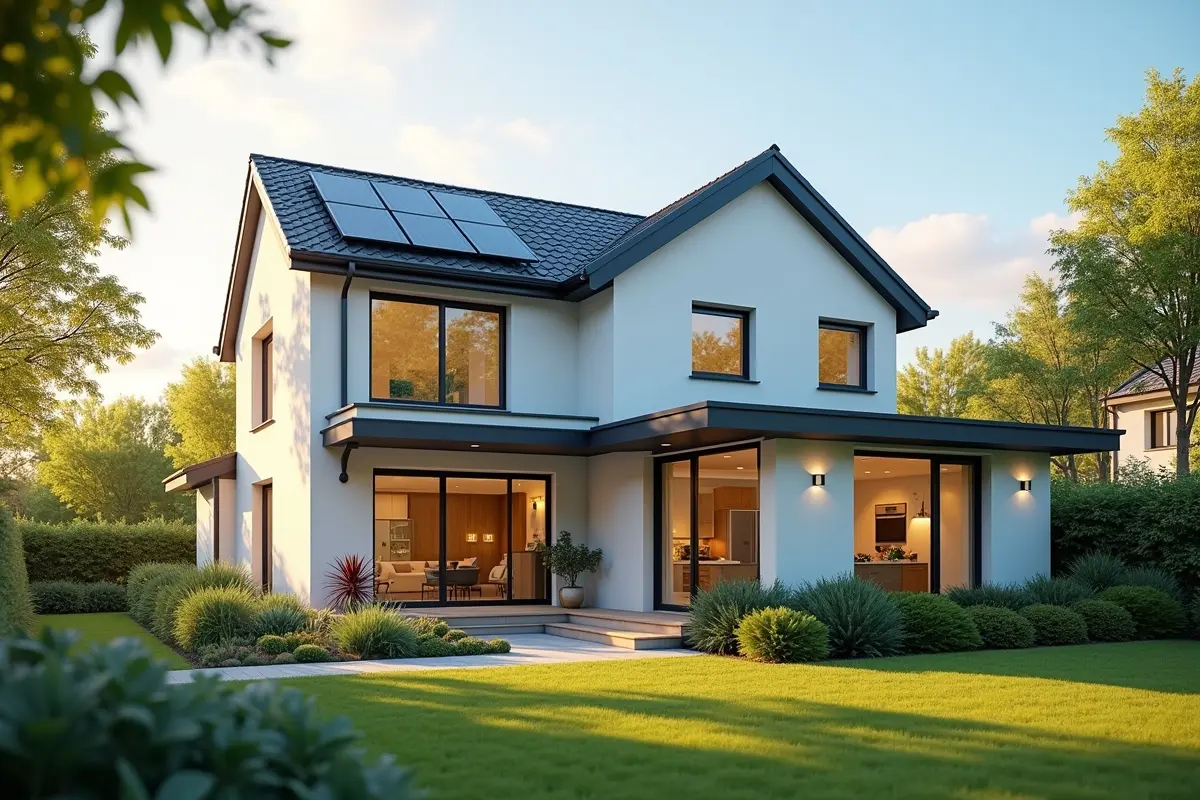Smart Savings: How to Make Your Home Energy Efficient
In today’s world, energy efficiency isn’t just about being eco-friendly—it’s about saving money and making your home more comfortable. From reducing utility bills to lowering your carbon footprint, there are countless benefits to creating an energy-efficient home.
The good news is, improving energy efficiency doesn’t always require expensive renovations or complicated technology. Small, intentional changes can make a significant impact. Here’s a practical guide to help you make your home smarter, greener, and more cost-effective.
Understanding Energy Efficiency at Home
Energy efficiency means using less energy to perform the same tasks. For homeowners, this translates into smarter heating, cooling, lighting, and appliance use. By reducing unnecessary energy consumption, you not only save money but also help conserve natural resources. Common energy drains in homes include outdated appliances, poor insulation, excessive lighting, and inefficient heating or cooling systems. Recognizing these areas is the first step toward creating a more energy-efficient home.
Optimize Heating and Cooling
Heating and cooling account for a significant portion of a home’s energy consumption, making efficiency in these areas a major factor in reducing utility bills. One of the first steps is to properly insulate your home, including attics, walls, and basements, which are common areas for heat loss or drafts. In addition, sealing gaps around doors and windows with weatherstripping or caulking can prevent energy leaks. For homeowners in Layton, Utah, residential glass replacement is another effective way to enhance insulation, as modern, energy-efficient windows help keep your home warmer in winter and cooler in summer.
Managing your thermostat is also crucial for energy savings. Installing a programmable or smart thermostat allows you to create temperature schedules that fit your daily routine, such as lowering the heat or air conditioning while you’re at work or asleep, which can result in significant savings over time. Regular HVAC maintenance, including timely filter changes and annual system inspections, ensures your heating and cooling system operates at peak efficiency, preventing wasted energy and unnecessary costs.
Upgrade to Energy-Efficient Appliances
Modern appliances are far more energy-efficient than older models. When it’s time to replace a refrigerator, washing machine, or water heater, look for the ENERGY STAR® certification. These appliances use advanced technologies that reduce energy consumption without compromising performance. Even small appliances like fans, microwaves, and space heaters can contribute to energy savings if chosen wisely.
Lighting is another area where upgrades pay off. Replace traditional incandescent bulbs with LED or CFL bulbs, which use significantly less energy and last much longer. Consider using motion sensors or timers in rooms you don’t use constantly to avoid wasting electricity.
Manage Water and Heating Costs
Water heating accounts for a notable portion of energy use in most households. Installing a tankless water heater or a high-efficiency water heater can cut energy consumption significantly. Simple habits, such as reducing shower time, fixing leaks, and washing clothes in cold water, also help conserve energy and reduce bills.
For homes with radiators or space heaters, ensuring that furniture or curtains don’t block heat distribution allows your system to work efficiently. Additionally, using ceiling fans strategically can circulate warm or cool air, reducing reliance on heating and air conditioning.
Embrace Renewable Energy Options
For homeowners ready to take energy efficiency to the next level, solar panels or small wind turbines can provide renewable energy that reduces reliance on the grid. While the upfront cost can be high, incentives, tax credits, and long-term savings make these options increasingly accessible. Even solar water heaters or solar-powered outdoor lighting offer smaller-scale, cost-effective solutions.
Adopt Smart Energy Habits
Beyond physical upgrades, your daily habits make a big difference. Simple changes like turning off lights when leaving a room, unplugging electronics when not in use, and running full loads of laundry or dishes can save energy. Smart home devices that monitor and control energy usage, such as smart plugs and energy-monitoring apps, help track consumption and identify opportunities for further savings.
The Benefits Add Up
By focusing on insulation, heating and cooling efficiency, energy-efficient appliances, water management, renewable energy, and mindful habits, you can make your home significantly more energy-efficient. Over time, these improvements lower utility bills, increase property value, and reduce your environmental impact. More importantly, they create a home that’s comfortable, sustainable, and future-ready.
Energy efficiency is more than a trend—it’s a smart investment. Whether you make small changes today or pursue major upgrades over time, each step brings you closer to a greener, smarter, and more cost-effective home. Start with the areas where you’ll see the biggest impact, stay consistent with good energy habits, and enjoy the financial and environmental benefits for years to come.

